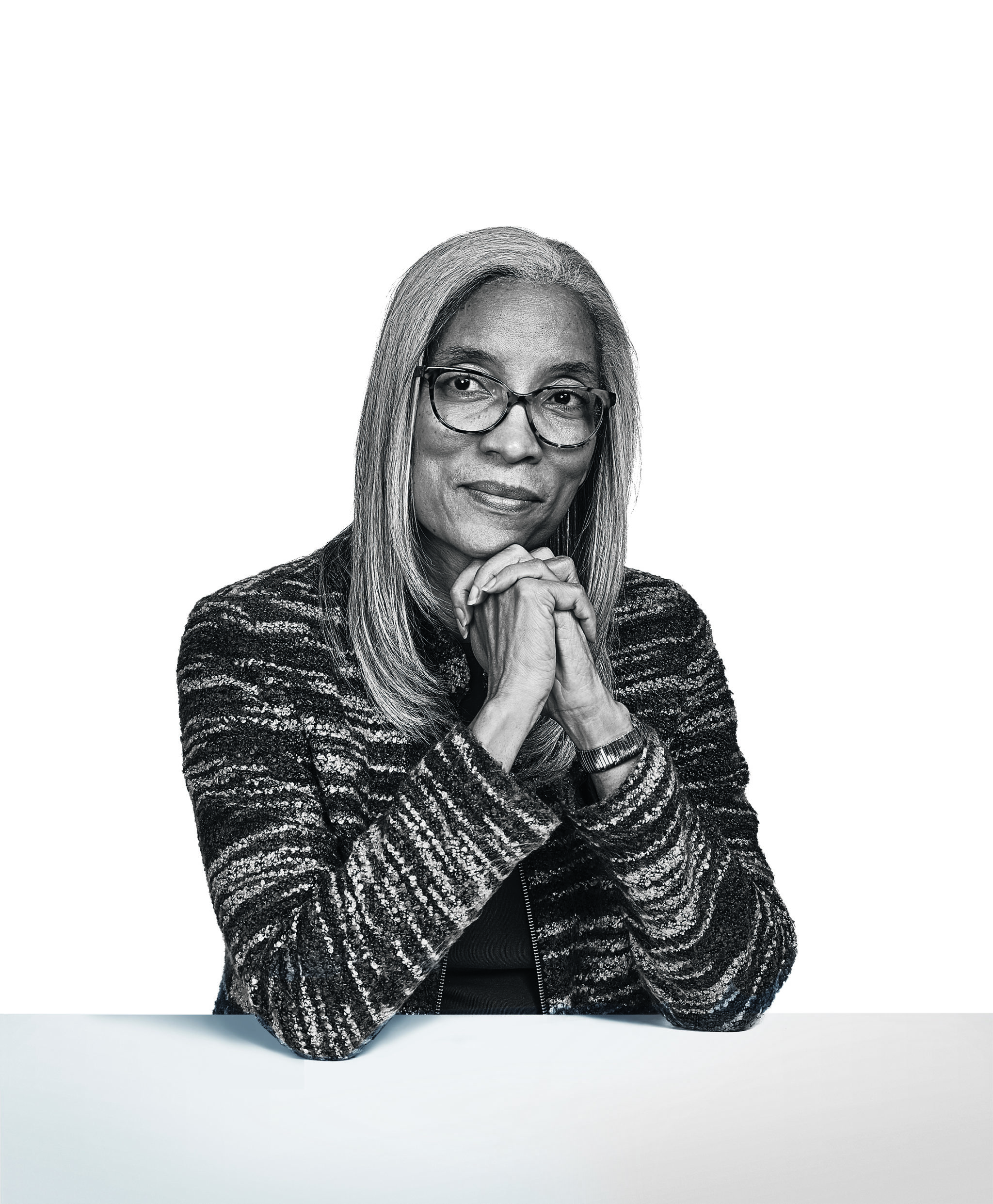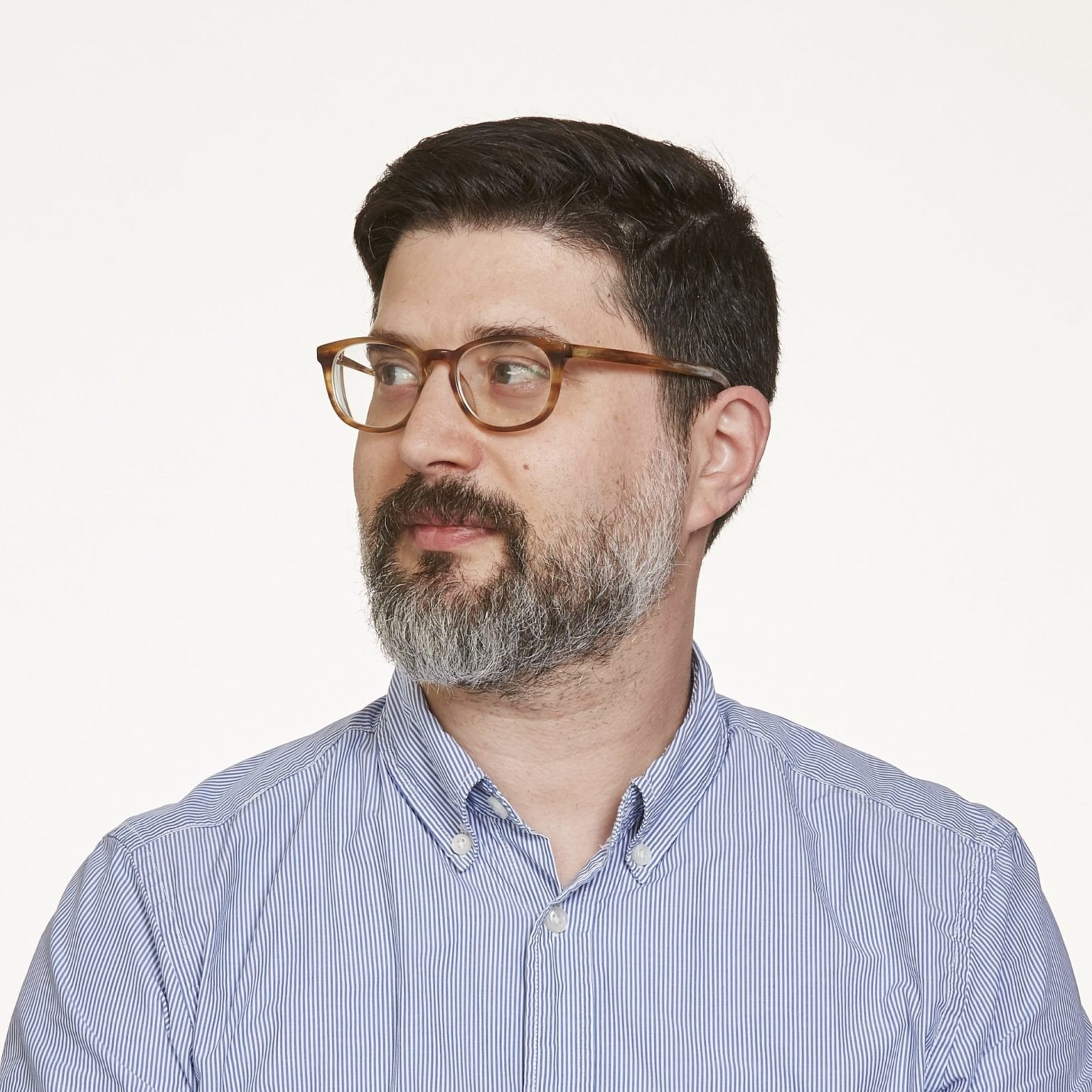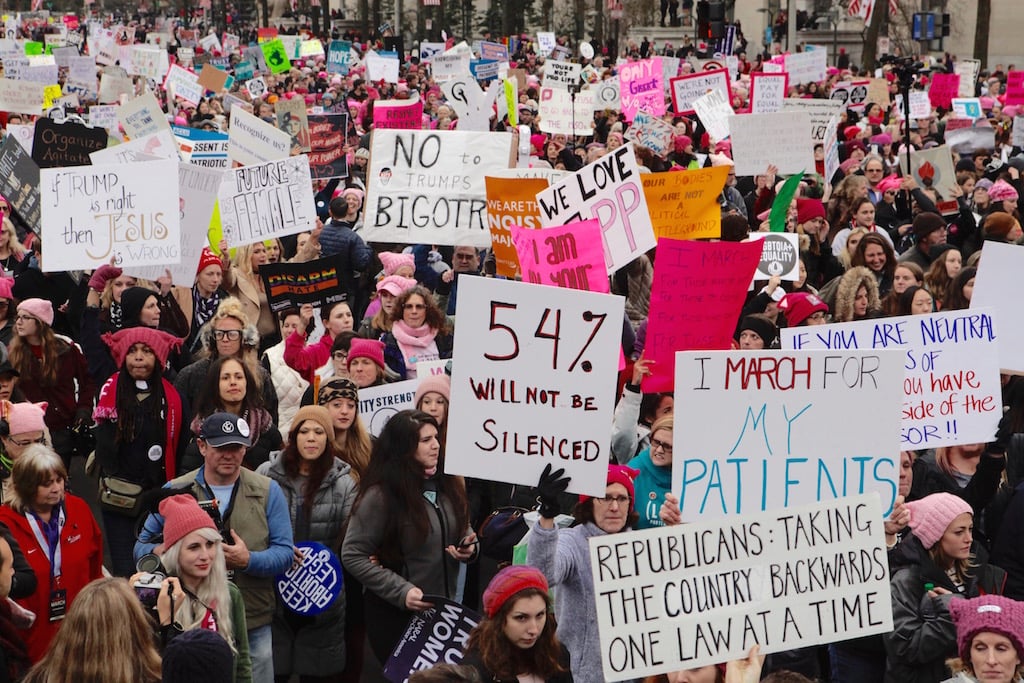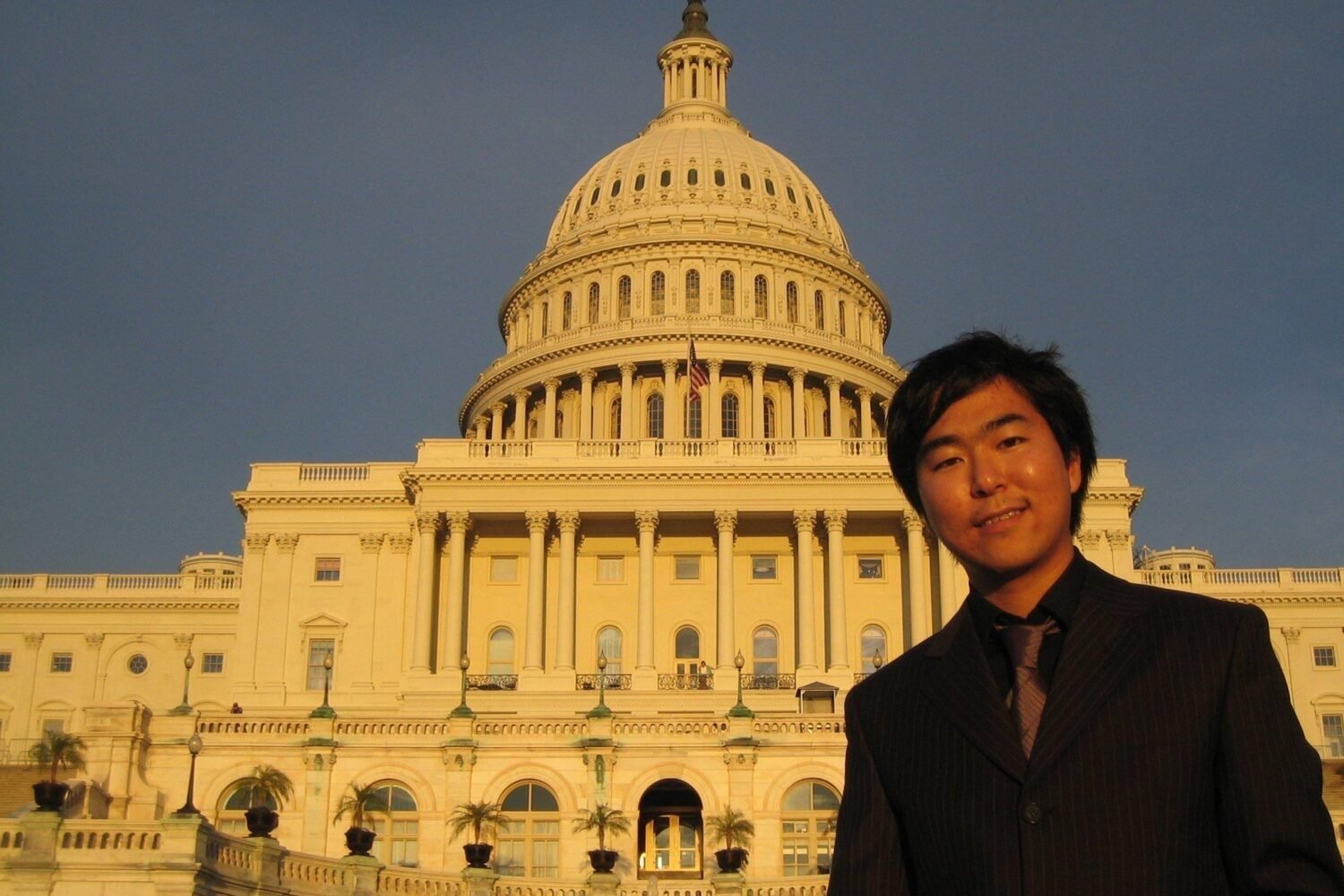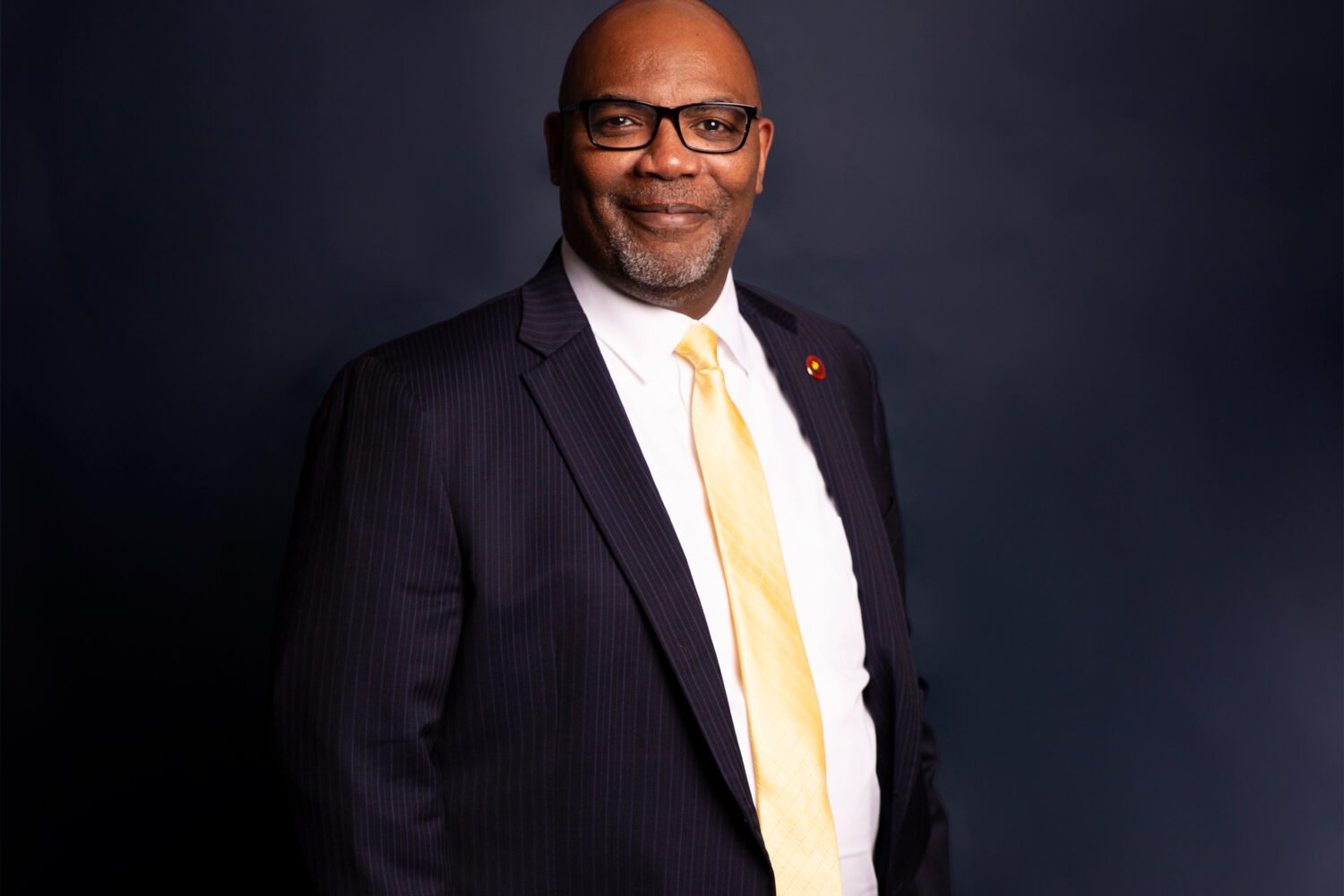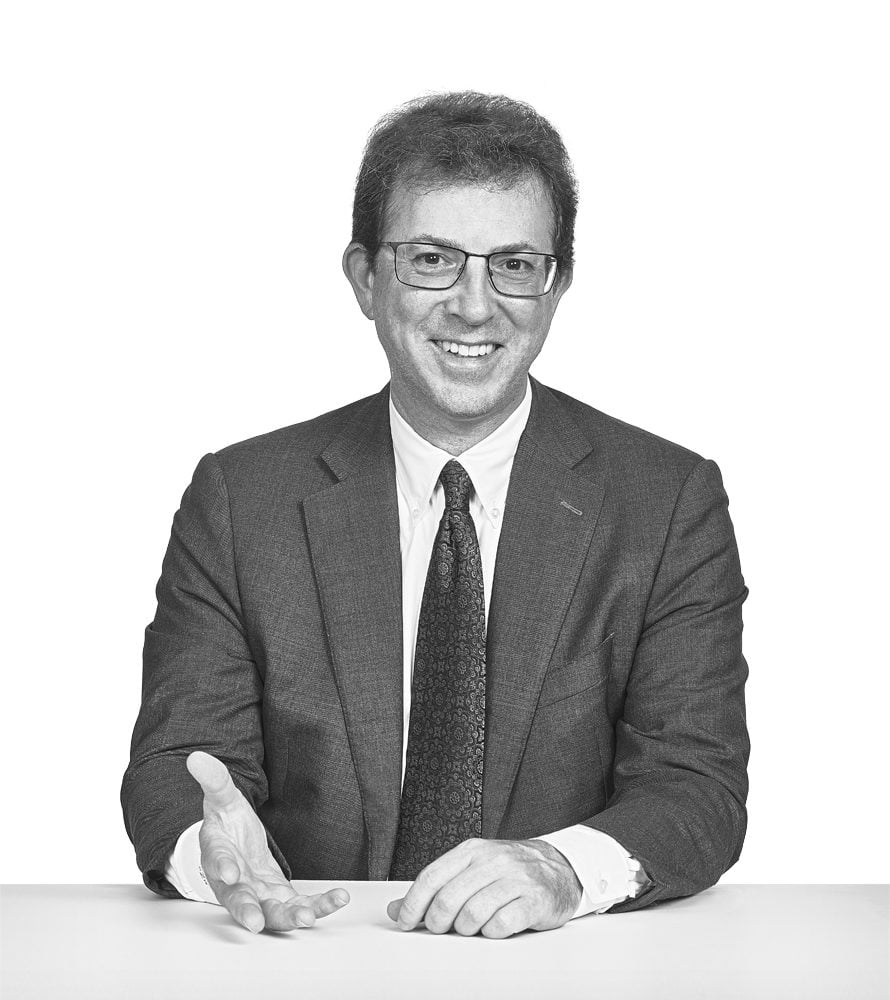As the director of DC’s Public Defender Service, Avis Buchanan oversees one of the country’s most respected organizations devoted to defending people who can’t afford a lawyer. A Prince George’s County native and graduate of Harvard Law School, Buchanan has worked on and off at PDS since 1982, when she started as a staff attorney. She has run the place since 2004.
The window of Buchanan’s workspace looks out across Pennsylvania Avenue at the National Archives, which houses the original Constitution and Bill of Rights. “When I walk in my office,” she says, “the minute I see the Archives building, I think of the Sixth Amendment,” which governs criminal prosecutions. “Every day, I get a reminder of why I’m here and how what we do is part of the foundation of this country.”
What do you wish people understood about what you do that they don’t?
That if you’re in DC, you want a public defender. Just because you’re paying somebody in DC doesn’t mean you’re getting quality service. We hire the best people and train them once they get here. Don’t assume that all public defenders are inadequate or incompetent or that this is the only job we could get.
A large percentage of the people on staff here graduated from well-known law schools, and they have competed against a lot of people to come here and get the jobs that they did. We look for quality and passion and intelligence and creativity and perseverance and all those good things. That’s what they will get if they get a lawyer from PDS.
Your role now is as a leader and administrator. Do you miss handling cases? I assume you get into this work because you like being able to help people one-on-one.
Well, I can still do that because people find me. I will get calls. If someone is frustrated and they want to go to the top, they will call me or write to me. But right, it’s the one-on-one. If I were doing what I’m doing now in almost any other context, I would probably want to pack up my briefcase and go. Because the administrative aspect of the job is not necessarily exciting or intrinsically rewarding. But what I do is so connected to the work of telling PDS’s story. That is what keeps me going, keeps me energized and inspired and motivated and passionate about coming in here every day.
There’s a lot of attention paid to people who are wrongly accused—the heroic public defender who gets an acquittal for somebody who’s not guilty. But it also seems really important to help people who maybe aren’t unfairly accused, who still are deserving of help and empathy.
Yep. Most cases are resolved by way of a plea of guilty. We push back on sentencing, we try to ensure that sentences are fair, that the story is told about a client that a judge needs to take into consideration. We focus on the things that may have brought someone to engage in criminal activity and address those for purposes of sentencing or even release. We were the first public-defender office that I know ever to have social workers on staff. It’s not just helping to avoid someone being proven guilty.
If a magic genie appeared and suddenly put you in charge of a prosecutor’s office, what’s the first thing you would do?
[Laughs.] Resign.
You couldn’t do it?
No, I couldn’t!
Even if you could make a positive difference by doing things differently?
To the extent that part of my job would be locking people up and charging them when I’ve been fighting against that for so long? I don’t think I could.
You went to Suitland High School. Were you politically active in school?
A juror was reading a book by Rush Limbaugh. We went, ‘Ugh.’ It turned out he was one of the best jurors for us in the end.
No, I got to be this way because of my parents. Growing up, we heard conversations about race and unfairness and remembering where you came from on a regular basis. It became part of my view of life.
My parents both went to the March on Washington. I remember looking at the march on TV and looking for them in the crowd. It was just who they were. It was the number-one topic of conversation. It wasn’t the only thing my father talked about—he talked about the importance of family and humility and education for black people and not settling, doing your best all the time. But race was a constant thing for us when I was growing up.
What do you remember about your early years at PDS?
I remember feeling like I just needed to keep up with everybody. I had two Supreme Court clerks in my [starting class at PDS] of seven. I remember seeing a different view of the city, because I was visiting clients and crime scenes and these were not places I had hung out in growing up in the area. I was thinking about how much our clients had to overcome, thinking what my life would have been if I had to face those same obstacles. Would I be where I was? I just remember being struck by how different I started out in life.
I’m curious if you have any advice for jurors. It’s such an important job but also, in my experience, often incredibly difficult.
Listen to the defense attorney. [Laughs.] Keep an open mind. You’re going to hear another side of things, and that’s just as valid, if not more so. Don’t assume. I don’t know if I can go deeper than that. I haven’t thought about that before.
So much of the outcome of what you do depends on these strangers sitting in a room hashing it all out.
Mm-hmm. You’re looking at them [during the trial] and trying to figure out: Is any of this resonating? Do you understand it the same way I’m putting it out there? What kind of judgments are you making about me or the client that are based on things that I’m not even clueing in on? You try to think about how you’re dressed and how you speak and how you present and what your client looks like sitting next to you. So you’re constantly paying attention to everything happening in the courtroom, but you don’t know what they’re focusing on.
You also need to be careful about making judgments about them. I remember in one civil-rights case, I had a juror who was reading a book by Rush Limbaugh. When we saw that we went, “Ugh.” But it turned out he was one of the best jurors for us in the end.
You just don’t know.
You just don’t know. You just don’t know. People can be nodding, and then the next thing you know, you’re getting a guilty verdict. Sometimes if you have the guts or the fortitude to speak with them after they’ve done that to your client, you [might say to them], “I thought you agreed with me!”
Do you often try to talk to jurors afterward?
You can often learn from them. And with the not-guiltys, you definitely want to thank them. One client, we had a not-guilty verdict and the jurors were waiting for me outside the courtroom with a message that they wanted me to deliver to the client to tell him good luck in life.
Finally, I have to ask about Cher. While doing research for this, I found a tiny newspaper item from 1987 about her following you around when she was making the movie Suspect.
Cher watched part of a trial that I was co-counsel for. She also invited my co-counsel and me to her hotel room because she wanted to get a sense of our daily lives. [People from the production] came to my house to see what a public defender’s home environment might look like. Then I got to be in a scene [as an extra] with Cher. And I was a technical adviser, so I flew up to Canada, where they reconstructed a DC courtroom.
How well did they capture your reality in the movie?
The basic premise was off from the start. They had the public defender investigating the case with a juror! There’s no way. Do you know much trouble you would get into having any kind of contact with a juror, let alone going out and investigating the case? But [the character] has a lot of sympathy for her client and she was persistent, so those things? Yes.
But you would not recommend that people watch the Cher movie Suspect to get a sense of what you do with your life.
Absolutely not.
This article appears in the March 2020 issue of Washingtonian.

